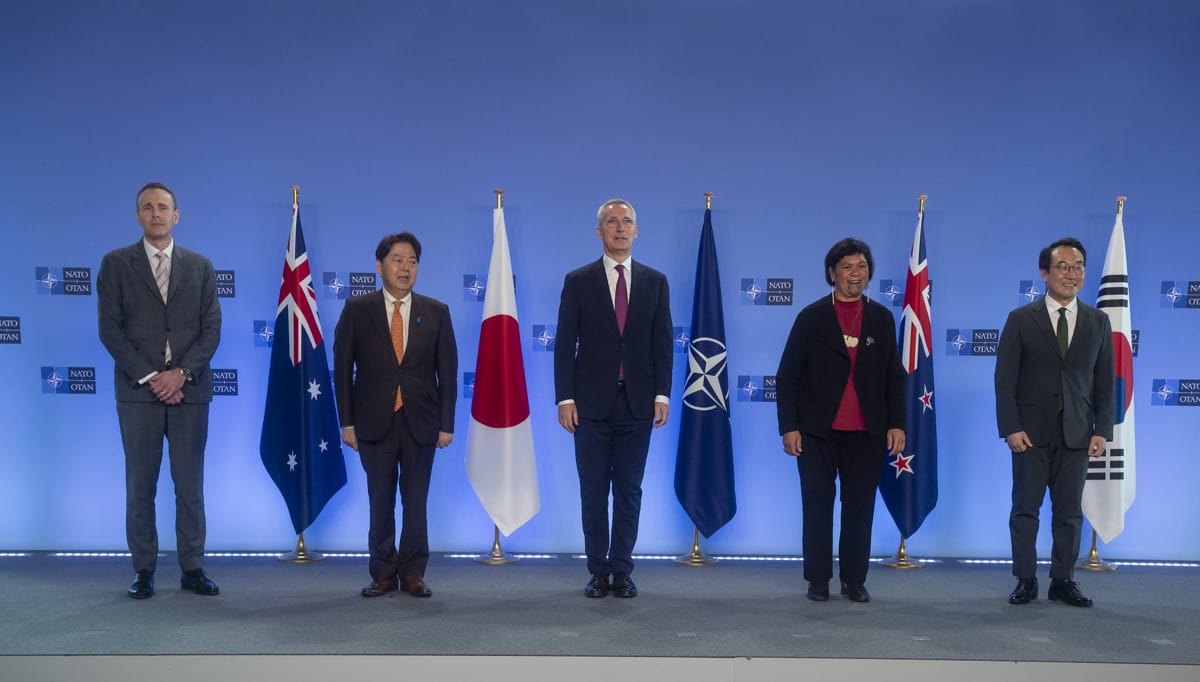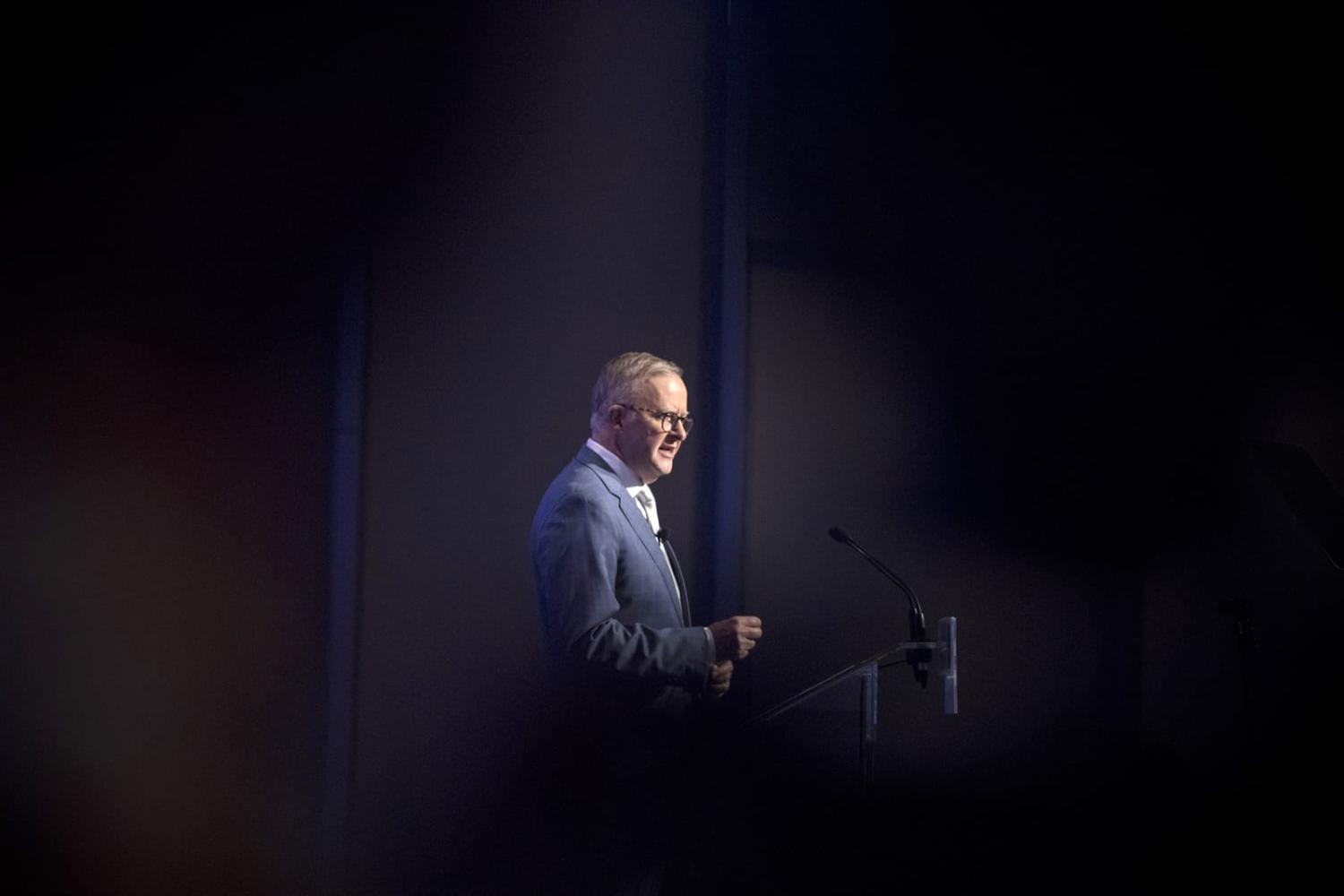On 11-12 July, Lithuania will host the North Atlantic Treaty Organisation’s summit for 2023 in Vilnius. The leaders of the “Asia-Pacific 4”, comprising Australia, Japan, New Zealand and South Korea, will be invited again after attending last year’s summit in Madrid. However, it seems that this time Australia will not send ministerial representation, with neither Prime Minister Anthony Albanese nor Foreign Minister Penny Wong to attend. There is allegedly dismay in Brussels.
If so, this emotion is hard to locate. If the Albanese government has decided not to send a minister, it seems perfectly reasonable.
Critics have focused on the need for Australia to underline its commitment to continuing support for Ukraine and an open international order, as well as to deepen its connection to European powers, particularly those that want to play a more active role in Indo-Pacific security. It is assumed that only sending a minister – ideally Albanese – will achieve this. This assumption is false for multiple reasons.
First, David Dutton, Deputy Head of Mission in the Australian Embassy to Belgium, Luxembourg, the European Union and NATO, is likely the one that will be attending. Dutton’s portfolio is directly concerned with NATO affairs and he was Australia’s representative at the Foreign Ministers’ meeting on 5 April. He is far from a junior diplomat, as characterised in reporting, and his direct focus on NATO and what would be repeated attendance at associated high-level summits displays Australia’s commitment towards cooperating with the alliance with intent.

Second, Australia’s diplomatic effort has been in overdrive since Albanese came into power, with its focus being on promoting an open and stable international order. Collaboration with allies and partners is essential to achieve this.
Both the Prime Minister and Foreign Minister attended the last Quad Summit in Japan almost immediately after being sworn in, and Albanese went to the NATO summit in Madrid around two months later. He was soon in Paris smoothing over damaged relations with France, arguably the only European power able to meaningfully project force in the Indo-Pacific behind the United Kingdom. The recent AUKUS announcements also bind Australia and Britain together in the Indo-Pacific. Wong has also been present (she visited 24 Indo-Pacific countries in her first six months), promoting a region that is “stable, prosperous, secure and respectful of sovereignty”. This all looks like an Australia committed to an open and stable international order and greater cooperation with Europe in both Euro-Atlantic and Indo-Pacific defence.
Moreover, in Australia, Ukraine finds its foremost Indo-Pacific supplier of military equipment (after the United States). Australia scarcely dithered in supporting Ukraine materially and rhetorically either, despite their capitals being about 15,000 kilometres apart. A lack of ministerial representation at the Vilnius summit does not diminish or question this commitment.
Lastly, Australia is not a NATO member or geographically in the Euro-Atlantic region, leaving it with less of an obligation to attend the summit at a ministerial level than alliance members. The “Asia-Pacific 4” have only been invited as of last year and perhaps it will become conventional to send a lower-level delegate albeit with a direct focus on NATO. It is also not as if Australia has just been approached by the alliance; the two have engaged since 2005 and continue to cooperate at the strategic level. Australia’s leader did participate at NATO summits during the years of the Afghanistan mission, too.
Viewing a decision not to send a minister to NATO this year in isolation also diminishes other factors. The Albanese government has sought to stabilise relations with the People’s Republic of China and has been careful with its language and choices around sensitive decisions and responses to Chinese activity. And there will be more of these to come, particularly around the contesting bids by the PRC and Taiwan to join the regional trading deal, the Comprehensive and Progressive Agreement for Trans-Pacific Partnership, which may well accelerate as a result of Britain’s membership. It is also reported that Albanese will officially visit the PRC in September or October this year, something he and his government would surely like to see materialise.
Perhaps it was decided that no ministerial attendance in Vilnius was a win-win for Australia, with the result being no change in the real and perceived commitment of Canberra to supporting an open international order, Ukraine’s resistance, and Europe’s greater involvement in the Indo-Pacific, paired with less reason for dispute and provocation from Beijing.

